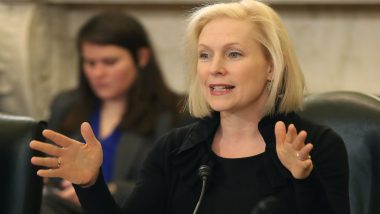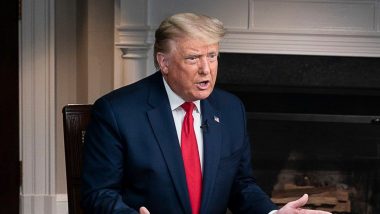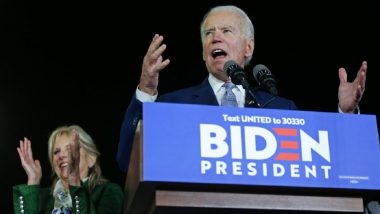Washington, March 17: New York Senator Kirsten Gillibrand on Sunday officially announced she would seek the Democratic party's nomination for the 2020 presidential election, taking aim at Donald Trump as she formally joined the crowded field of challengers.
In a video released Sunday morning, she said the national anthem posed the question: "Will brave win?" "Well, it hasn't always, and it isn't right now," she said. "Brave doesn't pit people against each other. Brave doesn't put money over lives. Brave doesn't spread hate. Tulsi Gabbard, First Hindu US Congresswoman, Officially Launches 2020 Presidential Election Campaign.
I’m running for president. Let’s prove that brave wins. Join me: https://t.co/I1vp93LBUR pic.twitter.com/Giu4u4KEZQ
— Kirsten Gillibrand (@SenGillibrand) March 17, 2019
Cloud truth. Build a wall. That's what fear does." The announcement was widely expected after the 52-year-old champion of women's rights told TV host Stephen Colbert in January she would be forming an exploratory committee.
In an election cycle where Democratic candidates are tilting heavily to the left, Gillibrand touted her vote against the Wall Street bailouts supported by both major parties, pledged to work for universal health care, and pass the so-called Green New Deal, an economic stimulus program aimed at tackling climate change.
Gillibrand joins more than a dozen Democrats already in the race, including Kamala Harris, Beto O'Rourke, Cory Booker in addition to independent Bernie Sanders who ran against Clinton for the Democratic nomination in 2016.
But she has distinguished herself in key ways, raising her national profile by sponsoring -- and mounting a three-year campaign for -- a bill that would revamp how sexual assaults in the military are prosecuted by removing them from the chain of command.
The bill fell short in the Senate, but Gillibrand has been relentless about highlighting sexual assault in the military, on college campuses and in the workplace. She is also one of the top Trump naysayers in the Senate, voting against the president's nominees for major posts more than almost any other senator.













 Quickly
Quickly




















